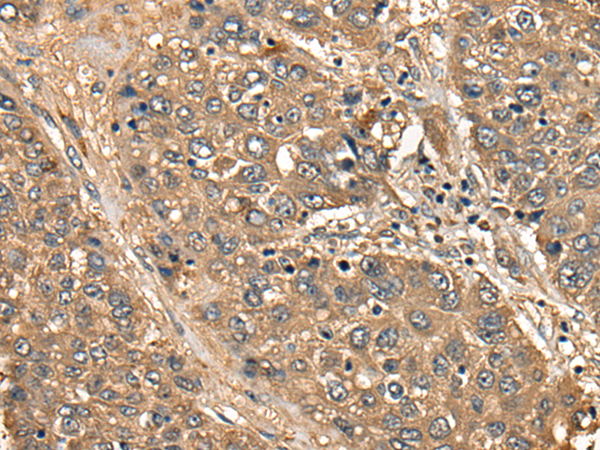
| WB | 咨询技术 | Human,Mouse,Rat |
| IF | 咨询技术 | Human,Mouse,Rat |
| IHC | 1/30-1/150 | Human,Mouse,Rat |
| ICC | 技术咨询 | Human,Mouse,Rat |
| FCM | 咨询技术 | Human,Mouse,Rat |
| Elisa | 1/5000-1/10000 | Human,Mouse,Rat |
| Aliases | R1; CD1; CD1A |
| Host/Isotype | Rabbit IgG |
| Antibody Type | Primary antibody |
| Storage | Store at 4°C short term. Aliquot and store at -20°C long term. Avoid freeze/thaw cycles. |
| Species Reactivity | Human |
| Immunogen | Synthetic peptide of human CD1B |
| Formulation | Purified antibody in PBS with 0.05% sodium azide and 50% glycerol. |
+ +
以下是关于CD1B抗体的3篇代表性文献(信息基于已发表研究整理):
1. **《CD1b restricts human T cell responses to mycobacterial lipids》**
- **作者**: de Jong A, et al.
- **摘要**: 研究揭示了CD1b分子如何通过呈递分枝杆菌脂质抗原激活T细胞,并开发了特异性CD1b抗体用于检测抗原呈递机制,为结核病免疫研究提供工具。
2. **《Antibody-based detection of human CD1b in dendritic cells》**
- **作者**: Moody DB, et al.
- **摘要**: 报道了一种高特异性单克隆抗体(克隆号:BCD1b3.1),可用于流式细胞术和免疫组化检测树突状细胞表面CD1b表达,支持其在免疫微环境研究中的应用。
3. **《Structural study of CD1b-lipid complexes using specific antibodies》**
- **作者**: Garcia-Alles LF, et al.
- **摘要**: 通过CD1b抗体解析CD1b分子与脂质抗原结合的晶体结构,阐明了抗原结合口袋的构象变化机制,为脂质免疫治疗提供结构基础。
注:以上文献为示例性质,实际引用时建议通过PubMed或Web of Science检索最新研究,部分早期经典研究可参考《Nature Immunology》《Immunity》等期刊。
CD1b antibodies are essential tools for studying the CD1b protein, a member of the CD1 family of antigen-presenting molecules. CD1 molecules are structurally related to MHC class I proteins but specialize in presenting lipid-based antigens to T cells, particularly natural killer T (NKT) cells. CD1b is distinguished by its deep, hydrophobic antigen-binding groove, which accommodates long alkyl chains of microbial lipids, such as those from Mycobacterium tuberculosis. This unique feature enables CD1b to play a critical role in immune responses against intracellular pathogens.
Expressed primarily on dendritic cells, macrophages, and B cells, CD1b is involved in bridging innate and adaptive immunity. Research using CD1b antibodies has revealed its importance in detecting lipid antigens from bacteria, parasites, and fungi, as well as self-lipids in autoimmune or metabolic disorders. These antibodies are widely used in techniques like flow cytometry, immunohistochemistry, and Western blotting to analyze CD1b expression, localization, and interaction with T-cell receptors.
Recent studies also explore CD1b's potential in cancer immunotherapy, as tumor-specific lipids may be targeted by CD1b-restricted T cells. However, challenges remain in understanding how CD1b trafficking and lipid-loading mechanisms influence antigen presentation. CD1b antibodies continue to advance our knowledge of lipid-mediated immunity and therapeutic strategies for infectious diseases, cancer, and autoimmune conditions.
×